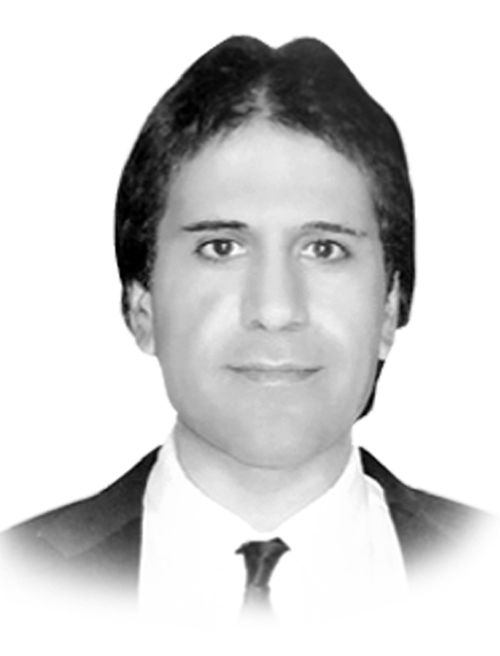The Iranian regime will never change its revolutionary character
The belief that international agreements and appeasement of the Iranian regime will lead to a change in its destructive behavior in the region, as well as Tehran’s antagonistic policies towards the US and the EU, is a myth.
First of all, any astute observer who has studied the Islamic Republic’s four-decade rule knows that the cornerstones of its founding were anchored in some non-negotiable and inflexible revolutionary ideals. Unlike any ordinary nation-state, which can change its policies because it prioritizes economic and national interests, a revolutionary regime has a distinct character. Iran’s domestic and regional policies are anchored in the three pillars of preserving its revolutionary ideologies, national interest (relating to economic, strategic and geopolitical landscapes) and Iranian nationalism. But the regime is a staunch supporter of prioritizing ideological norms over the other two pillars.
One of the regime’s key principles is to export its ideology and system of velayat-e faqih (guardianship of the Islamic jurist) to other countries. The regime’s late founder, Ayatollah Khomeini, introduced a revolutionary idea into Shia thought with the concept of Velayat-e Faqih. This became the basis of the Islamic Republic’s constitution and gave the supreme leader the tutelage of the people.
From the perspective of the Tehran regime, if the establishment changed its stance and changed its theological and Shia policies in the region, it would lose its underlying revolutionary character, its legitimacy, its attractiveness among its supporters and the essence of its revolution. jeopardizing the survival of his theocratic political establishment.
For this reason, the regime appears to be preparing Ebrahim Raisi to succeed Supreme Leader Ali Khamenei after his death. It wants a revolutionary leader to vigorously pursue the ideological principles of Khomeini and the central ideals of the 1979 Iranian revolution.
Since coming to power in 1989, Khamenei has not strayed from Khomeini’s revolutionary ideology. These include the export of Shia principles, the projection of the Islamic Republic as Islam’s vanguard, hegemony in the region and the denial of Israel’s existence. These policies define the Iranian regime’s raison d’être in the Middle East and its ideological and regional approach.
Moreover, their adherence to these revolutionary ideals through the prism of Iran’s leaders is the reason for their success in ruling for more than four decades and makes their political establishment immune to powerful opposition, popular uprisings and revolutions.
Other fundamental revolutionary principles cherished by the Iranian regime are the non-abandonment of Iran’s nuclear program (despite a deal with international powers), military, financial and political support for Shia proxies, and self-portrayal as a vanguard of Islam.
One does not have to go far back in history to see that, despite overwhelming appeasement from Western powers, the regime has not changed the fundamentals of its establishment. When the Joint Comprehensive Plan of Action nuclear deal was signed in 2015, all four rounds of crippling UN sanctions that had taken decades to impose on the Islamic Republic were lifted. At the same time, then-US President Barack Obama lifted four previous executive orders against Iran, removing unilateral American sanctions. The deal has also unlocked Iran’s financial assets, which have been valued at tens of billions of dollars.
The US Treasury Department also removed about 400 Iranian citizens from its blacklist, freeing up their assets and allowing them to do business with Americans. And the deal gave the Iranian government a chance to re-enter the global financial system and trade in many commodities that were previously banned. The rest of the western world followed suit as the EU lifted all nuclear-related economic and financial sanctions on Tehran and began doing business with the theocratic establishment.
Iran is ruled by a revolutionary regime that has put its principles above other interests for more than four decades.
dr Majid Rafizadeh
But Iran has only been emboldened and empowered to the extent that it has repeatedly harassed superpower naval vessels without fear of consequences.
Regionally, as Tehran became more armed due to its additional revenues, it increased its military interventions in Syria, Iraq, and Yemen, and ramped up its advisory, financial, weapons, and intelligence support to its Shia proxies along with Syrian President Bashar Assad. Iran also increased its strategic and tactical cooperation with Russia to undermine US interests and strengthen the Russia-China-Iran axis.
In summary, Iran is ruled by a revolutionary regime that has placed its principles above other interests for more than four decades. No amount of appeasement will change the fundamental pillars and revolutionary principles of the Islamic Republic, since the theocratic constitution of the ruling clerics has narrowed Iran and made change impossible. The political establishment of ruling clerics is becoming increasingly incompatible with the standards, rules and laws of the international community.
- dr Majid Rafizadeh is a Harvard-educated Iranian-American political scientist. Twitter: @Dr_Rafizadeh
Disclaimer: The views expressed by the authors in this section are their own and do not necessarily reflect the views of Arab News

